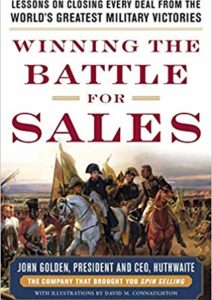Planning in Sales, and Why it Matters
The dictionary definition of a plan is “a method for achieving an end.” A method is “a systematic procedure or technique.” Contained within that simple sentence is the key to why some salespeople succeed, and why some don’t. In many ways, we are to blame for why some salespeople ignore or shortchange planning in sales. We have created the stereotype of the salesperson as a frenetic, all action individual, always on the move, driving a sale forward as much on their strength of will and personality as anything else.
The idea of the studious, methodical salesperson almost seems contradictory by comparison. And yet, research has proven that the most successful salespeople invest quality time in analyzing opportunities. They carefully plan calls and ensure that in addition to their desired outcome, they plan contingency outcomes.
Today’s salesperson has a wealth of online tools at their disposal to research, plan, and uncover corporate information about their target companies. They also have sources like LinkedIn and the ever-increasing host of social media tools to uncover information about their target contacts. So, there are many ways to forensically create a composite of the opportunity and the players involved. Technology aside for a moment, focus on the planning mindset. The seeds of success are sown in two things. First, those reflective moments that precede the direct engagement with the potential customer. And second, the emphasis and importance placed on this step by salesperson and selling organization.
History has demonstrated this to us over and over again. Whether in momentous political struggles, or epic encounters on the battlefield, there are things ultimately set up the victory. The many hours spent strategizing, pouring over maps, analyzing strengths and weaknesses, and carefully plotting each methodical step will help you win. Sales have so much in common metaphorically with warfare. Planning in sales is not unlike planning for the battlefield.
Successful outcomes are a combination of excellent planning, superior execution and the ability to flex quickly to situational changes. Once you picture sales in that context, you can quickly see that committing an army to the field with minimal planning and little to no contingencies should events unfold in unexpected ways would be negligence in the extreme. Yet in sales, too many organizations allow this very scenario to happen. They then and wonder why their win rates are poor and their pipeline is prone to alarming fluctuations.
So, try this as an exercise with your own sales opportunities or sales teams. Imagine that you are about to enter a combat situation. Ask the hard questions in advance. How much do you actually know about the theater you are about to enter? Have you properly evaluated whether this is a battle you have a good chance of winning? Have you clearly identified that various players you are about to come up against? What are their roles are? How can they influence the outcome of the engagement? What about contingencies, should you not be able to secure victory quickly and according to plan? And, one of the most overlooked, questions: How will you gauge if this engagement is not going your way and you should withdraw and live to fight another day?













Comments